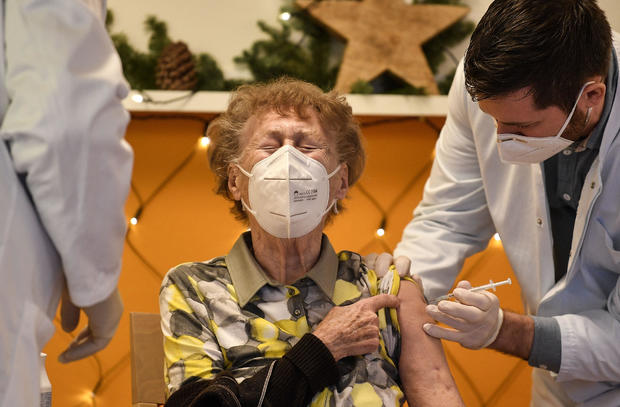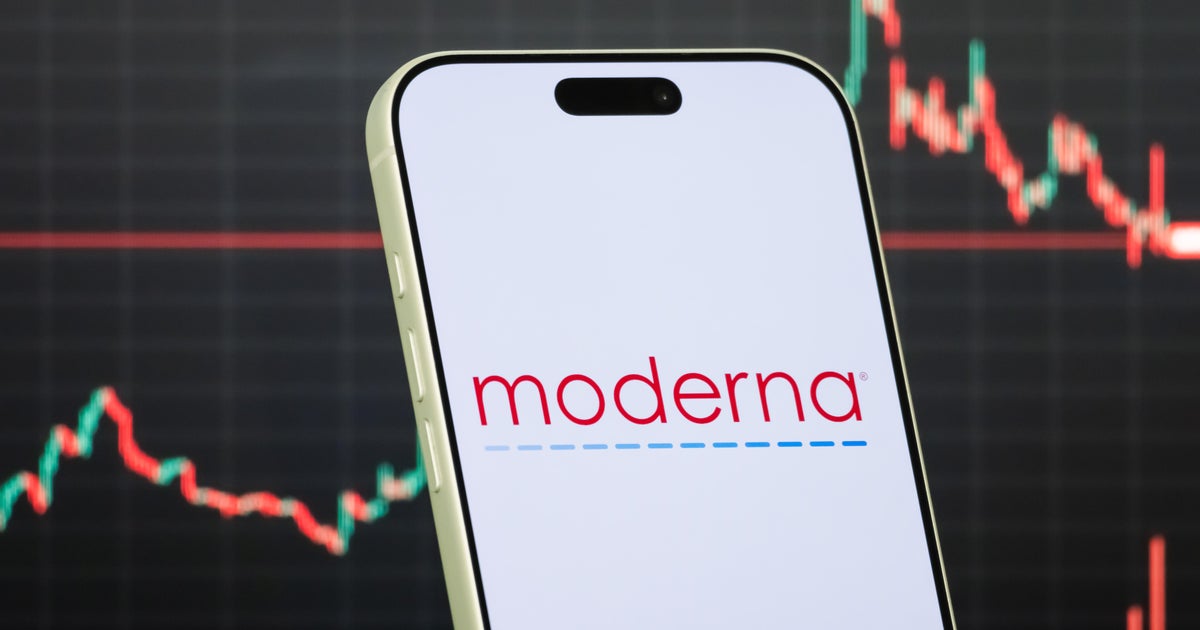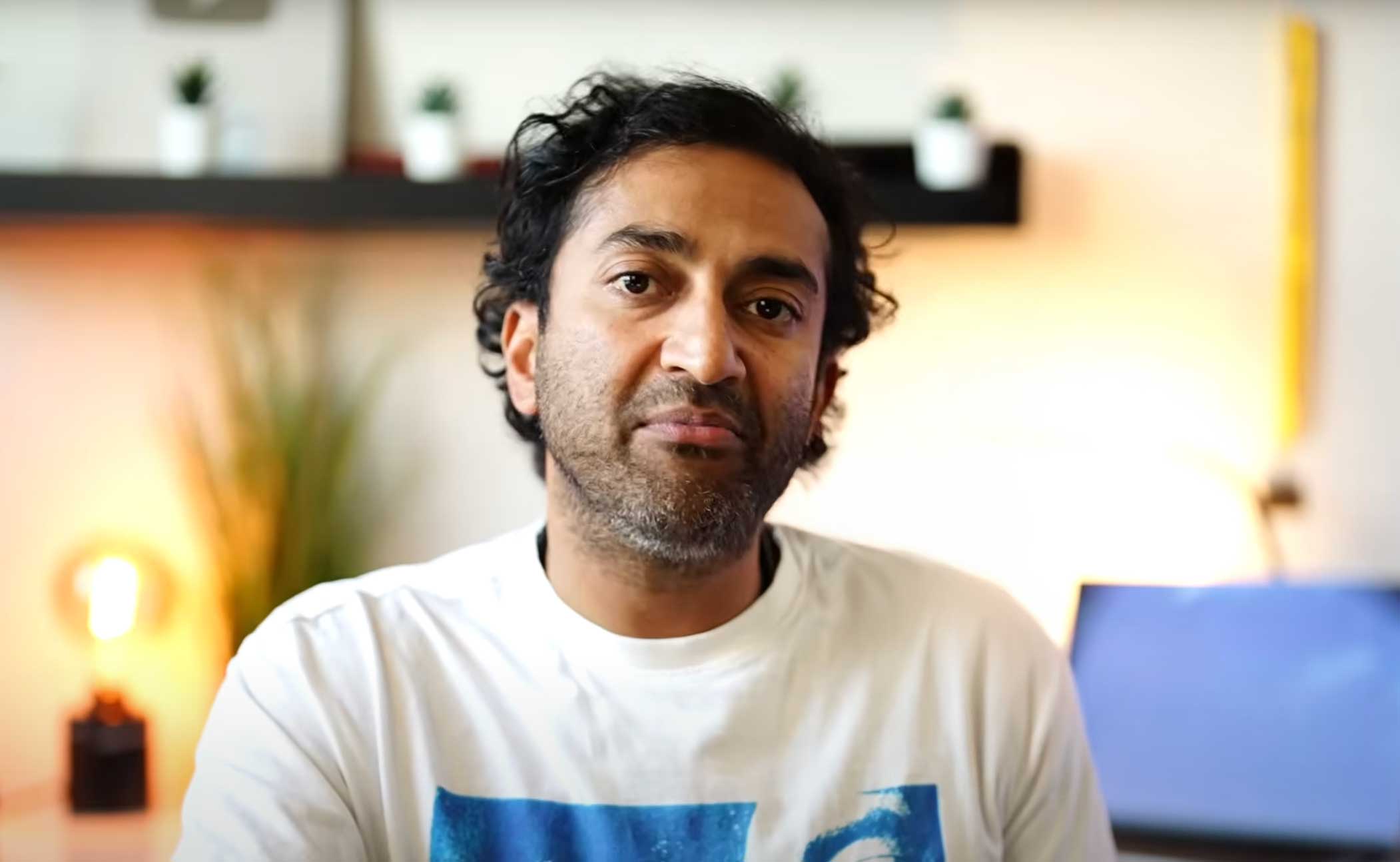EU regulator authorizes use of Oxford-AstraZeneca COVID vaccine
Berlin — Regulators authorized AstraZeneca's coronavirus vaccine for use in adults throughout the European Union on Friday, amid criticism the bloc is not moving fast enough to vaccinate its population. The European Medicines Agency (EMA) licensed the vaccine to be used in people 18 and over, though concerns had been raised this week that not enough data exist to prove it works in older people.
The shot is the third COVID-19 vaccine given the greenlight by the European Medicines Agency, after ones made by Pfizer and Moderna. All three have been authorized for all adults.
Many countries on the continent have been struggling to vaccinate people as quickly as Britain, Israel, the U.S. and elsewhere, and it was long hoped that the AstraZeneca shot would help speed things up.
Who will get it?
The EMA said Friday that it was recommending a two-dose regimen of the Oxford vaccine, with the second shot being administered between four and 12 weeks after the first.
"This dosing regimen was shown in clinical trials to be safe and effective in preventing symptomatic COVID-19, with no severe cases and no hospitalizations more than 14 days after the second dose," the regulator said.
AstraZeneca CEO Pascal Soriot welcomed the news with a statement saying it, "underscores the value of AstraZeneca's COVID-19 vaccine which is not only effective and well-tolerated, but also easy to administer and, importantly, protects fully against severe disease and hospitalizations."
On top of the recent news that AstraZeneca would supply fewer doses in an initial batch, there were concerns that a potential age restriction might further hamper Europe's vaccination program.
Some doctors feared restricting the vaccine's use in older people might worsen the pandemic's impact, since older people have suffered more severe disease and died at a higher rate from the coronavirus.
But in its decision Friday, the European agency recommended the AstraZeneca vaccine, developed with Oxford University, for use in all adults.
While the AstraZeneca vaccine has been authorized for all adults in other countries, only 12% of the participants in its research were over 55 and they were enrolled later, so there hasn't been enough time to get results. Britain's government, and Oxford's scientists, have insisted however that the data from the large-scale trials can be extrapolated to demonstrate efficacy across all adult age groups.
A large trial published last month showed the vaccine was about 70% effective in preventing people from getting sick from the coronavirus, although it is unknown whether the shot stops disease transmission.
Germany's doubts
Germany's health minister Jens Spahn said earlier that he expected the EU drug regulator to authorize the AstraZeneca vaccine, but he noted there were still concerns, first raised by German officials, over the lack of specific efficacy data for older adults.
On Thursday, a draft recommendation from Germany's vaccination advisory committee said the AstraZeneca vaccine should only be given to people aged 18-64.
Spahn said earlier on Friday, however, that Germany could adjust its own guidance based on the EMA's recommendation.
"We don't expect an unrestricted approval," Spahn told reporters in Berlin, before the EMA gave just such an approval. "The data available for older people, and that's been the debate in recent days, isn't sufficient for that."
The AstraZeneca vaccine has been authorized for all adults in many other countries, including the U.K., India and Brazil.
EU lagging behind
While politicians have blamed supply problems for the slow rollout, other factors, like onerous paperwork and poor planning, have also played a role. The bloc failed to secure any orders from vaccine makers until months after Britain and the U.S., for instance, reserved hundreds of millions of doses.
The EU has lashed out in particular at AstraZeneca after the drugmaker said it would supply less vaccine in a first batch than originally anticipated.
Further raising concerns about supplies to the bloc, which is home to some 450 million people, Moderna told countries including Italy and Denmark that it would be delivering fewer vaccines than originally expected.
Spahn, the German health minister, said he understood many were waiting impatiently for the vaccine, but cautioned that "several hard weeks of vaccine shortage still lie before us."
The EU bet heavily on the AstraZeneca shot, which is cheaper and easier to handle than some other vaccines, with orders for 300 million doses to be delivered after authorization and options for another 100 million doses.
Two more vaccine makers also recently positive announced trial results, with Novavax saying this week that its shot appears 89% effective based on early findings and Johnson & Johnson saying its long-awaited single-shot vaccine was 66% effective at preventing moderate to severe illness.
If those vaccines are eventually licensed, that could help alleviate the pressure on the world's huge demand for the limited shots currently available.




